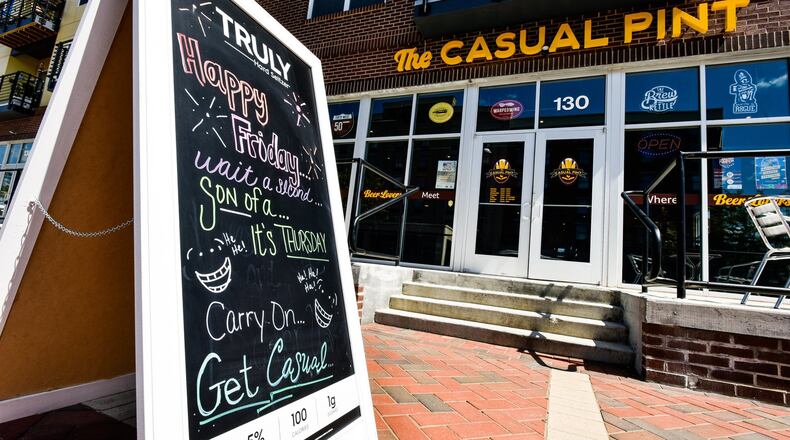On the other hand, there is concern the area and country could slide into another recession, which a number of economists say is overdue.
Here’s a look at several issues that should be major topics for Hamilton in 2020:
Street repair levy
On March 17, city voters will go to the voting booths to decide whether to approve a 10-year, 3.9-mill property tax levy that will generate $3.1 million per year and cost the owner of a $100,000 home about $136.50 per year.
The city has been struggling to repair streets that officials say were not given the attention they needed for decades. Even if the levy is approved, Hamilton still will have a long way to go toward fixing all its needy streets, officials said.
Some 70 percent of Hamilton streets are in fair to poor condition, city officials have said. Some have not been repaved in 40 years, city Engineer Rich Engle has said.
In another method to raise money for repairs, City Council in 2019 approved a $5-per-year license tax for vehicles that are registered in the city. That will reap about $300,000 per year for street repairs that will be paid by automobile owners, including those who don’t own houses or other real estate in the city.
Spooky Nook benefits
Business owners have been opening new shops, bars and restaurants, or expanding them, at least in part because of Spooky Nook’s planned opening in late 2021.
Site-clearing has been happening on the Spooky Nook site, the North B Street location of the former Champion Paper mill. Since early December, the first of 700 semi-flatbeds of steel have been arriving on site, where they are being stockpiled for completion of the enormous building’s roof.
Several property owners have told the Journal-News they are developing buildings into bars, or expanding their stores, largely because of the economic benefits they see coming from Spooky Nook, which also will include Greater Cincinnati’s second-largest business meeting center, behind only the Duke Energy Convention Center in downtown Cincinnati.
RELATED: Owner hopes new restaurant, bar in two 19th century Hamilton buildings energizes downtown
Increasing eating and drinking options
The October opening of the Chipotle Mexican Grill in the 1400 block of Main Street was cheered by many fans of the restaurant, and increased the eating options for Hamilton restaurants who don’t want to go far from home when eating out. But city officials hope it will lead to even more dining options, because Chipotle is one of those restaurants that other restaurant groups look at and tend to follow, City Manager Joshua Smith said.
Meanwhile, other restaurants and bars have opened this year, with more expected to follow.
City leaders hope the downtown area and Main Street corridor can become an entertainment destination in Butler County, similar to Cincinnati’s Over-the-Rhine or Covington’s MainStrasse areas, with a cluster of micro-breweries and other bars developing in the city.
Protecting “teetering” neighborhoods
Another top priority for Hamilton in 2020, after many complaints were raised in 2019, is protecting key blocks in various neighborhoods that are tipping toward instability.
With people in Lindenwald, the North End and other neighborhoods complaining about petty thefts and other crimes during 2019, the city in late 2019 created a new Department of Neighborhoods, led by Brandon Saurber, the city’s former director of Strategy & Information, two other reassigned city staffers plus a newly hired AmeriCorps VISTA member. Two current VISTA members also have been assigned to the department.
“We’re only as strong as a community as our weakest link,” Smith said, in explaining the need for the department, “and we know we can go into many of our neighborhoods, and they’re struggling.”
In some of those areas, longtime city residents are wondering whether they should continue to live where they are, or whether they should move elsewhere.
About the Author
